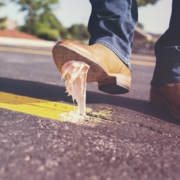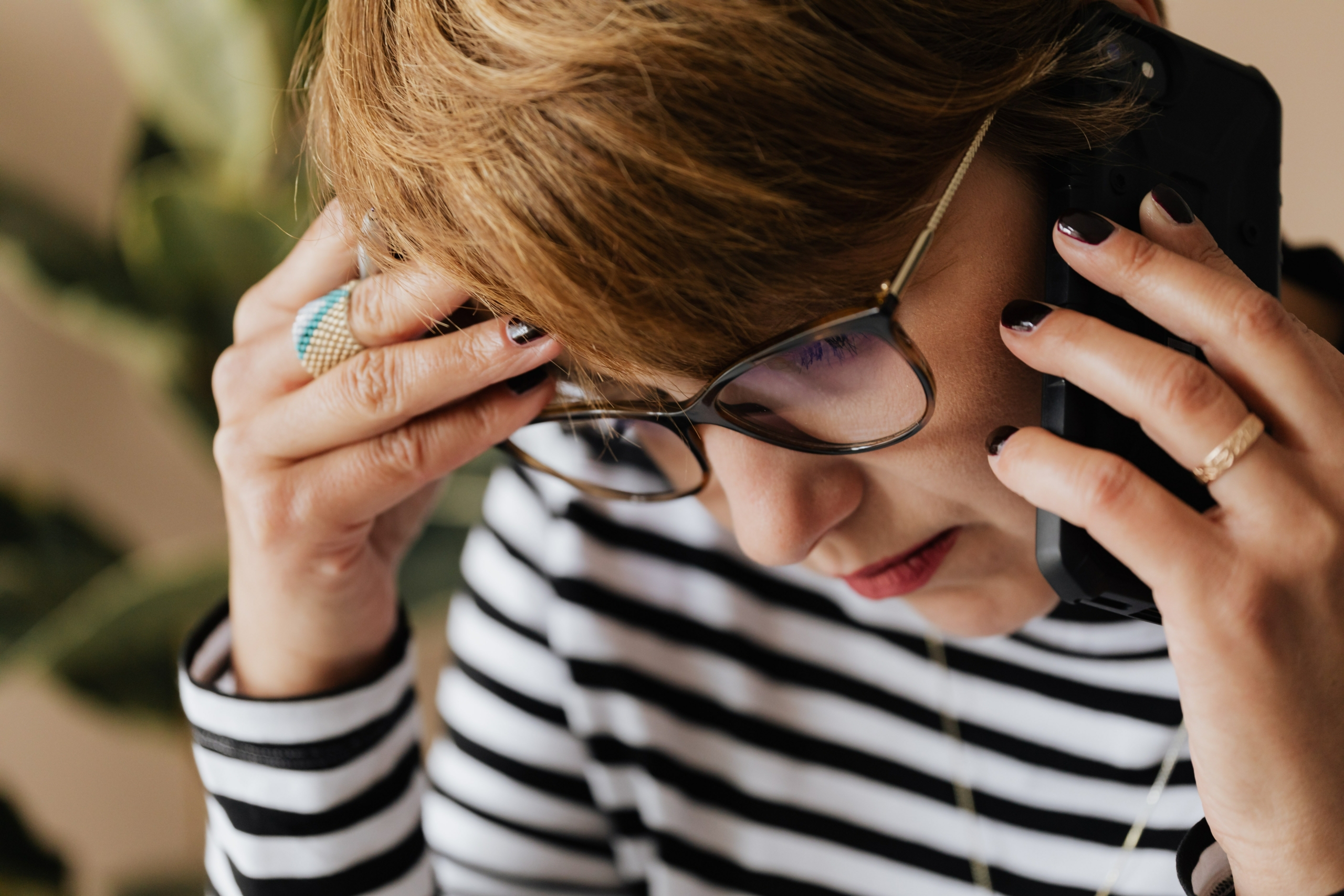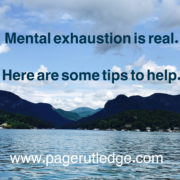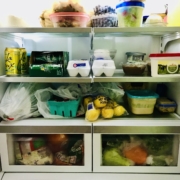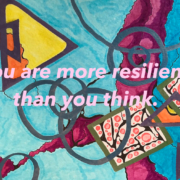Have you ever wondered why your partner triggers such an immediate response in you? Would you like to get curious not furious? Understanding your attachment style, or the way you related growing up to your primary caregiver, can provide a clue to the immediate, visceral reactions you have at times in your current relationships. Instead of getting furious, you can get curious!
Connection or protection? How are you wired? Did you know that love wires us for connection but trauma wires us for protection? Sometimes over-protection. Sometimes under-protection. Here’s how.
When I work with adult children who suffered from childhood trauma, the single most difficult thing to believe is also the most difficult to help them shift. Read more
If you have anxiety sensitivity, here are 10 factors that contribute to “Sticky Thoughts.” Sticky thoughts are the ones you just can’t shake loose. Sticky thoughts predispose your mind to anxiety and hyper-vigilance. They tend to keep you stuck in your own personal anxiety loop that is both unproductive and self-shaming. That is why learning to identify and talk back to them is critical to your good mental well being.
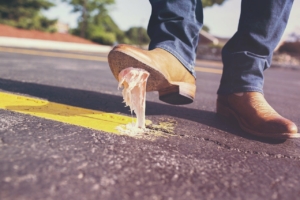
Feeling stuck?
The 10 Sticky Thoughts Factors
- Sleep deprivation/insomnia
- Drinking alcohol
- [Some] OTC medications
- Steroids of any type, asthma meds
- Your genetic inheritance is a factor
- Any illness, a cold, for example
- Caffeine or sugar intake—notice what affects your body
- A natural cycle upon wakening that many feel as a sort of dread of the day, which lessens over the course of the day
- Hormone fluctuations
- Hyper-vigilance, or monitoring of the content of the mind is the most prevalent factor of all.
BONUS ROUND!!! Social Media! Devices! They are the trigger for so many of our sticky thoughts.
People pleasing looks like saying “yes” to everything, or being the person who’s always there for anything that’s preferred or needed by the other person.
If you are hug starved, I want you to know you are not alone. Touch starvation is real. Dopamine, oxytocin (the cuddle hormone), serotonin, and endorphins—all of these necessary hormones are greatly reduced with loss of touch. I can guarantee you miss touch if you live alone, are neuro-typical, and have been much more isolated since the start of COVID19. Touch starvation is a real thing. And among much lower doses of the aforementioned neurochemicals your brain releases when touched (in a positive manner), it also lowers your immune response. Bad news indeed. But there are ways to counteract the absence of touch.

Are You Hug Starved?
What Touch Does For Us
We are accustomed to physical touch, casually and intimately. Evolution dictates that we are born with a need for it. Many hospitals have volunteer cuddling programs for babies in NICU. Failure to thrive due to lack of human connection has killed many babies and children. Our skin is the largest organ in our body. It has billions of sensors that are activated when we are touched. Pleasing touch aids in food digestion, improves your immune system response, and helps you sleep well. Physical touch is one of Gary Chapman’s Five Love Languages. I know how incredibly important it is to me.
Every single medical disease including heart attack, diabetes, hypertension, asthma — every single physical disease — is altered if you are more anxious, more depressed or if you have more mental health issues.— Asim Shah, M.D., professor and executive vice chair of the Menninger Department of Psychiatry at Baylor College of Medicine.
When we are missing touch, it contributes to feeling isolated and uncared for in a way that leads to depression and an amplification of other challenging issues in our lives, both medical and psychological, that are already present. Touch calms the limbic system, and when lost, it leaves your stress response at a level that makes it much more readily activated. It leads to higher levels of cortisol, the stress response hormone. Yes, loss of touch is one more result of COVID19, the gift that just keeps on giving.
Counteracting Touch Starvation
Here are ten ways to counteract touch starvation during COVID19. You will be be familiar with many of these, but it is still important to try them if you are feeling this loss.
- Video-chat connection, whether it’s FaceTime or Zoom or WebEx, has been shown to be about 80% effective at replacing in-person connection. But you have to have the visual connection.
- Interaction with animals, namely pets, can be crucial.
- Online yoga, workout, and dance instruction are helpful in the release of oxytocin.
- Actually dancing online, moving in tandem with others, in either dance parties or with one other person activate mirror neurons, which in turn make us feel a part of something other than ourselves.
- Singing can also aid in the release of helpful neurochemicals, especially with others.
- Manicures, pedicures and getting your hair done are terrific for touch stimulation, and feeling renewed as well.
- Applying gentle pressure with wighted blankets, or simply one with a texture that is pleasing to you, along with the various compresses /eye-pads that can be heated or chilled.
- Simply wetting a washcloth with very hot water, wringing it out and placing it gently over your face, inhaling the steam and enjoying the warmth is quite pleasing.
- Massage (with a trusted professional who is abiding by heightened cleaning standards) is a proven way to relax.
- Playing games online while also maintaining a live video chat connection is fun. Make sure you take time to chat and catch up with people’s personal lives before you leap to playing.
One Other Factor Contributes To Touch Starvation
Even before COVID19, touch in our lives has become greatly, sneakily, reduced. I attribute this directly to our screens and mobile devices. We hide behind them. And the incredible power behind the algorithms that run the various social platforms we hook into keep us scrolling. We may spend less and less time engaged with the here and now, and what is going on right in front of us.If you don’t believe me, I highly recommend you watch the documentary The Social Dilemma on Netflix.
Conclusion
Many of us are touch starved. Safety and the pandemic has dictated this. But we are resilient and adaptable, and this pandemic will pass. Meanwhile, those most deeply affected by touch starvation must increase our awareness and practice ways we can successfully counteract this deprivation in order to live healthier lives.
If you are isolated and lonely, engaging in therapy online can help. Contact me here if you think it would help.
I am a member of the Anxiety and Depression Association of America (ADAA), and they often publish articles of value that I like to share with you. The following “Ten Tips For Dealing With Mental Exhaustion” is one such article.
Does your routine get to you these days? Does the sameness of the days get to you? Do you wake up some of these pandemic mornings and wonder what is all for? Do you think “Where is the meaning in this? All I do is eat, poop, sleep, and perhaps reproduce?” The joke is when you google that, you’ll get lots of newborn childcare advice.
Isn’t it interesting that some of life’s most paradoxical challenges have simple solutions that are tough to execute? The takeaway? You are far more resilient than you think.
PAGE RUTLEDGE, LCSW, CHt | Couples Counseling
Tel: 910-777-7243
Offices at:
5006 Randall Parkway (close to UNCW)
Wilmington, NC 28403
Free parking at office





